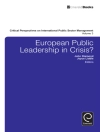Much has been written about political polarisation in the United States, but no one has examined it through the lens of recent U.S. history. There is nothing deterministic about how we became polarised, and it happened more recently than many think. To fully understand the problem, we must take the long view, the perspective provided by history, with its attention to change over time and the role of contingency. That’s what The Path to Paralysis does.
The book illuminates the broad forces that have shaped and reshaped American society and politics since the mid-1960s: the shift from an industrial to an information economy that produced economic inequality not seen since the 1920s; dramatic, unsettling changes in gender and sexuality; sharp conflict between those who embrace the culture of personal freedom that was a legacy of the 1960s and politically mobilised White evangelicals; persistent racial discord that transformed Southern politics and shattered the New Deal coalition; and dramatic changes in communication that transformed broadcasting into narrowcasting, creating alternate news and truths.
These developments had their origin in the late 1960s and have generated sharp political conflict for six decades. But they didn’t overwhelm the system until the 21st century. Ronald Reagan moved American politics to the right, but Republicans and Democrats forged compromise on issues as diverse as economic policy, civil rights, and immigration. After the culture wars of the 1980s and 1990s, Bill Clinton and George W. Bush tacked to the centre and sought bipartisan solutions to issues like welfare, education and immigration. Sharp conflict and governance were compatible.
The tipping point was the election of the nation’s first Black president and the economic collapse he inherited. Fault lines of religion, region, gender, sexual orientation, class, education and, especially, race widened. People chose sides and identified enemies, the number of true swing voters shrunk, fewer states and congressional districts were competitive, the two major parties became more monolithic, and appeals to the base drove strategy and what passed for policy. It was an atmosphere that provided fertile ground for a demagogue whose norm-busting appeals to White grievance and Christian Nationalism, as well as to regional and class resentment strengthened his appeal to an angry base and threatened the peaceful transition of power, the bedrock of American democracy for more than two centuries.
Spis treści
Acknowledgments; Introduction; CHAPTER 1: 1964; CHAPTER 2: The Liberal Consensus Under Fire, 1965–1969; CHAPTER 3: Conflict, Crisis, and Continuity, 1969–1976; CHAPTER 4: A New Right Emerges, 1972–1980; CHAPTER 5: Reagan: The Revolution That Wasn’t—and Was, 1980–1988; CHAPTER 6: Conservatives at the Crossroads, 1988–1992; CHAPTER 7: Ideological Convergence and Political Polarization, 1992–2000; CHAPTER 8: The Lost Opportunity, 2000–2008; CHAPTER 9: The Tipping Point, 2008–2012; CHAPTER 10: Reaping the Whirlwind, 2013–2016; CHAPTER 11: American Carnage, 2016–2020; CHAPTER 12: “A republic, if you can keep it”; Conclusion; Bibliographical Essay; Index
O autorze
Donald G. Nieman is an authority on modern U.S. law and politics, and professor of history and provost emeritus at Binghamton University – State University of New York.












